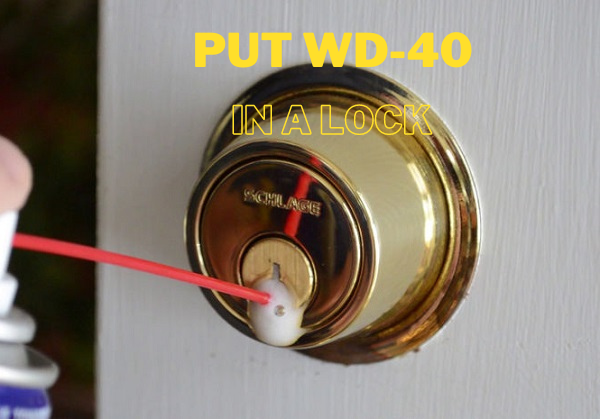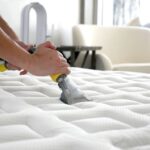People are often curious on whether or not it is safe to put WD-40 in a lock to keep it from sticking. Though WD-40 is a popular product these days, there are no answers to this question that can be found online. This blog article will get you the answers you’ve been looking for!
Is it OK to put WD-40 in a lock?
WD-40 is a popular lubricant that is often used to fix things. However, some people have been using it to try and get their car key out if they have lost their key.
WD-40 doesn’t work well on locks that are made of metal. It can damage the lock and make it difficult to open. If you try to use WD-40 to unlock your car, you run the risk of getting your car keys stuck in the lock.
If you have lost your car key, don’t try to get it out using WD-40. Instead, call a locksmith or take your car to a mechanic to get it fixed.
WD-40 is a common lubricant and degreaser that many people use to keep their locks working properly. It is not a harmful substance, but it should not be used in locks because it can damage the mechanism. If you accidentally put WD-40 in your lock, you can remove the WD-40 using a towel or a cloth.
Explanation of using lubricant on a lock
Many people ask whether it is safe to use WD-40 on their locks. The short answer is that there is no harm in using WD-40 on a lock, as long as you follow the proper safety precautions.
WD-40 is a lubricant that can be used to help keep locks working properly. It is not harmful to the lock or the key, and it does not damage the metal. In fact, WD-40 can even help to make the lock work more quickly.
However, you should only use WD-40 on a lock if it is in need of repair or if it has become jammed. You should never use WD-40 on a new lock or on a lock that has not been damaged in any way.
If you decide to use WD-40 on your lock, be sure to follow the proper safety precautions. Always wear gloves and eye protection when working withWD-40, and do not allow children to contact the liquid.
Take these precautions during putting WD-40 in a lock?
WD-40 is a great tool for fixing things, but it’s not the best choice for locking your doors. Here are some precautions that you can take to ensure that your locks stay safe:
1. Make sure that you use the correct WD-40 for your lock. WD-40 is designed to be used on metal surfaces, but it can damage plastic locks.
2. Use WD-40 sparingly. Too much WD-40 can weaken the lock and make it easier to break into.
3. Test the lock before you apply WD-40 by putting your key in and turning it around. If the lock opens with the key, then you know that WD-40 is working properly.
4. Do not use WD-40 on electric locks or electronic security systems. These locks are sensitive and can be damaged if WD-40 is applied incorrectly.
5. If you have to apply WD-40 to a lock, make sure that you do it outdoors or in a well-ventilated area. This will help to prevent any accidental fires that could occur from using too much WD-40 in a lock.
6. You can remove the oil from your lock by soaking it in a small amount of dishwashing detergent and water for about an hour. After this time, wipe dry and apply WD-40 to loosen up any oil that has hardened in the keyhole.
7. To help rust out the lock, you can wash off dried WD-40 with plain water or vinegar. You can also use household ammonia in place of water, but be sure not to let it come into contact with wood or metals.
8. Do not use WD-40 on stainless steel locks since this will cause further damage.
Conclusion
WD-40 is a versatile product that can be used in a variety of ways. While some people may feel safer using WD-40 to secure locks, others might not believe it’s necessary. Ultimately, the decision whether or not to use WD-40 to secure your locks is up to you and your personal safety concerns.














